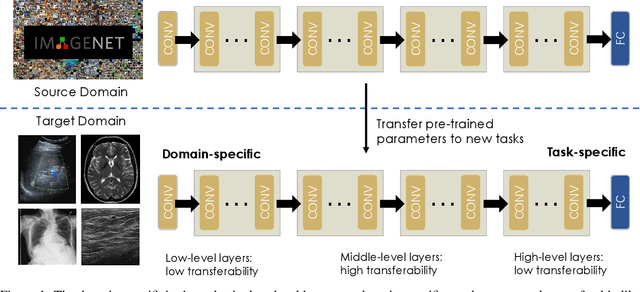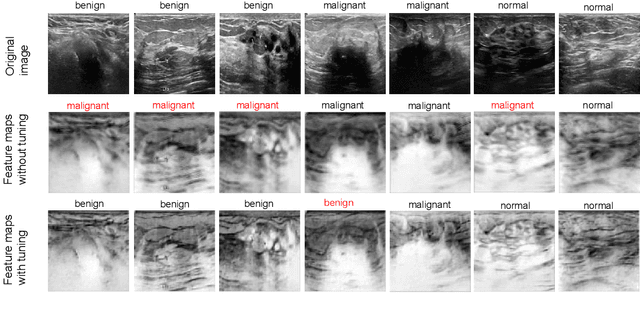MetaLR: Layer-wise Learning Rate based on Meta-Learning for Adaptively Fine-tuning Medical Pre-trained Models
Paper and Code
Jun 03, 2022



When applying transfer learning for medical image analysis, downstream tasks often have significant gaps with the pre-training tasks. Previous methods mainly focus on improving the transferabilities of the pre-trained models to bridge the gaps. In fact, model fine-tuning can also play a very important role in tackling this problem. A conventional fine-tuning method is updating all deep neural networks (DNNs) layers by a single learning rate (LR), which ignores the unique transferabilities of different layers. In this work, we explore the behaviors of different layers in the fine-tuning stage. More precisely, we first hypothesize that lower-level layers are more domain-specific while higher-level layers are more task-specific, which is verified by a simple bi-directional fine-tuning scheme. It is harder for the pre-trained specific layers to transfer to new tasks than general layers. On this basis, to make different layers better co-adapt to the downstream tasks according to their transferabilities, a meta-learning-based LR learner, namely MetaLR, is proposed to assign LRs for each layer automatically. Extensive experiments on various medical applications (i.e., POCUS, BUSI, Chest X-ray, and LiTS) well confirm our hypothesis and show the superior performance of the proposed methods to previous state-of-the-art fine-tuning methods.
 Add to Chrome
Add to Chrome Add to Firefox
Add to Firefox Add to Edge
Add to Edge